Budget 2024: Clean Energy Investments to Get Boost, Experts Say
By Rediff Money Desk, New Delhi Jul 17, 2024 16:44
Experts predict the upcoming Indian budget will focus on promoting investments in clean energy with policy measures, VGF schemes, and incentives for the renewable energy sector.
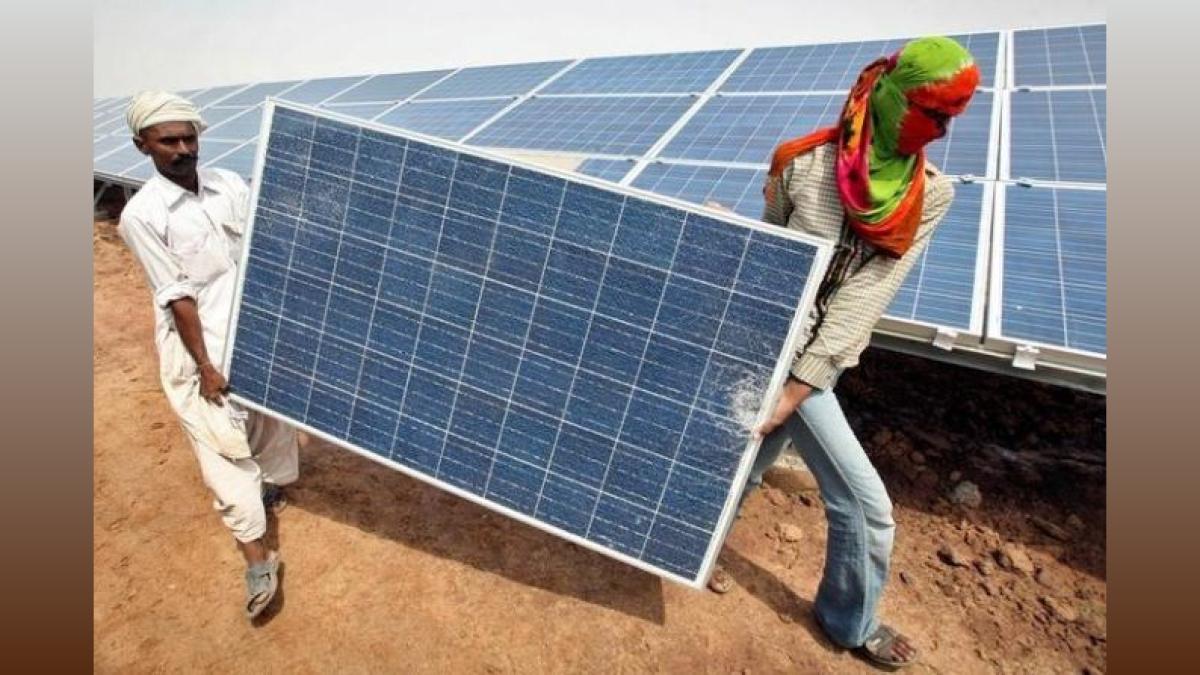
New Delhi, Jul 17 (PTI) The government is expected to announce a slew of measures in the full Budget for fiscal year 2024-25 to promote investments in the renewable energy space, experts say.
Finance Minister Nirmala Sitharaman will present the 2024-25 Union Budget in Parliament on July 23.
Their expectation is that the government may announce policy-related measures, viability gap funding (VGF) and incentive schemes for the clean energy industry, the experts said.
"We expect the focus of the budget to remain green growth based... We expect the budget to focus more on renewables, storage, transmission and distribution network strengthening schemes.
"We expect policy measures to incentivise, and to encourage investments in (battery) storage groups," Girishkumar Kadam, Senior Vice President & Group Head - Corporate Ratings, ICRA Ltd said.
There is a slow progress being witnessed in pumped storage projects (PSP) space. Some policy bridges need to be announced to expedite the implementation of these projects as these are going to be very systemically important assets for India as far as energy transition is concerned, he said.
A VGF scheme can be thought of which has been announced for the battery storage products. The Production-Linked Incentive (PLI) Scheme is also being proposed but its framework is yet to be finalized. So that needs to be expedited by the government, Kadam said.
Ashwin Jacob, Partner, Industry Leader - Energy, Resources & Industrials at Deloitte said the government is also expected to provide concessional tax rate on sale of all carbon credits and Renewable Energy Credits (RECs) and, not limited to carbon credits validated by the UN Framework on Climate Change (UNFCC), along with clarification on set-off of losses and unabsorbed depreciation thereof.
He also recommended hydrogen purchase obligation (HPO) for sectors such as refinery and fertiliser to drive domestic demand.
Jacob further said currently, indirect tax has become a major cost component for the Green Hydrogen (GH) sector in two ways. First, the customs duty paid on the import of solar modules or solar cells used in setting up solar power plants for supplying renewable energy to GH plants.
Second, the loss of GST input pertaining to all procurements made by solar/wind power plants in setting up the unit, as the output electricity is exempt.
The electricity supplied by a solar/wind power plant to a GH unit should be considered as deemed export, so that the solar/wind power plant is eligible to claim refund of input GST, which then does not become a cost for the GH unit.
Alternatively, the Central Board of Indirect Taxes and Customs (CBIC) should also allow direct refund of the GST paid on all capital goods, inputs and input services used in generating power to solar/wind power plants, with the condition that output electricity is supplied exclusively to a GH unit.
The CBIC should provide upfront exemption from a 40 per cent basic customs duty on the import of solar modules, with specified end-use condition of using such solar power plant for supplying electricity exclusively to a GH project, or provide the benefit of project import with concessional basic customs duty of 7.5 per cent on solar power plant or solar power project, being set-up for supply of electricity exclusively to GH project.
Finance Minister Nirmala Sitharaman will present the 2024-25 Union Budget in Parliament on July 23.
Their expectation is that the government may announce policy-related measures, viability gap funding (VGF) and incentive schemes for the clean energy industry, the experts said.
"We expect the focus of the budget to remain green growth based... We expect the budget to focus more on renewables, storage, transmission and distribution network strengthening schemes.
"We expect policy measures to incentivise, and to encourage investments in (battery) storage groups," Girishkumar Kadam, Senior Vice President & Group Head - Corporate Ratings, ICRA Ltd said.
There is a slow progress being witnessed in pumped storage projects (PSP) space. Some policy bridges need to be announced to expedite the implementation of these projects as these are going to be very systemically important assets for India as far as energy transition is concerned, he said.
A VGF scheme can be thought of which has been announced for the battery storage products. The Production-Linked Incentive (PLI) Scheme is also being proposed but its framework is yet to be finalized. So that needs to be expedited by the government, Kadam said.
Ashwin Jacob, Partner, Industry Leader - Energy, Resources & Industrials at Deloitte said the government is also expected to provide concessional tax rate on sale of all carbon credits and Renewable Energy Credits (RECs) and, not limited to carbon credits validated by the UN Framework on Climate Change (UNFCC), along with clarification on set-off of losses and unabsorbed depreciation thereof.
He also recommended hydrogen purchase obligation (HPO) for sectors such as refinery and fertiliser to drive domestic demand.
Jacob further said currently, indirect tax has become a major cost component for the Green Hydrogen (GH) sector in two ways. First, the customs duty paid on the import of solar modules or solar cells used in setting up solar power plants for supplying renewable energy to GH plants.
Second, the loss of GST input pertaining to all procurements made by solar/wind power plants in setting up the unit, as the output electricity is exempt.
The electricity supplied by a solar/wind power plant to a GH unit should be considered as deemed export, so that the solar/wind power plant is eligible to claim refund of input GST, which then does not become a cost for the GH unit.
Alternatively, the Central Board of Indirect Taxes and Customs (CBIC) should also allow direct refund of the GST paid on all capital goods, inputs and input services used in generating power to solar/wind power plants, with the condition that output electricity is supplied exclusively to a GH unit.
The CBIC should provide upfront exemption from a 40 per cent basic customs duty on the import of solar modules, with specified end-use condition of using such solar power plant for supplying electricity exclusively to a GH project, or provide the benefit of project import with concessional basic customs duty of 7.5 per cent on solar power plant or solar power project, being set-up for supply of electricity exclusively to GH project.
Source: PTI
Read More On:
DISCLAIMER - This article is from a syndicated feed. The original source is responsible for accuracy, views & content ownership. Views expressed may not reflect those of rediff.com India Limited.
You May Like To Read
TODAY'S MOST TRADED COMPANIES
- Company Name
- Price
- Volume
- Vodafone Idea L
- 6.98 (+ 4.65)
- 60677014
- Srestha Finvest
- 0.61 ( -3.17)
- 34071844
- AvanceTechnologies
- 0.94 (+ 1.08)
- 20697315
- Standard Capital
- 1.00 ( -0.99)
- 13454274
- GTL Infrastructure
- 2.02 ( 0.00)
- 11915413
MORE NEWS

Orissa Alloy Steel Wins Coal Mine in Jharkhand
Orissa Alloy Steel Pvt Ltd has secured a coal mine in Jharkhand during the 10th round...
Eunity Partners Appoints Teachmint's Ex-HR Head...
Eunity Partners appoints Farhan Hazarika, former HR head of Teachmint, as its partner...

GQG Partners Backs Adani Amid Bribery Scandal
GQG Partners reaffirms confidence in Adani Group despite US bribery indictment, citing...



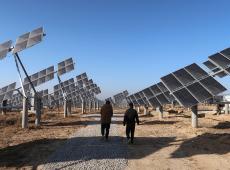
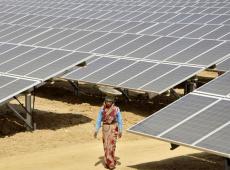
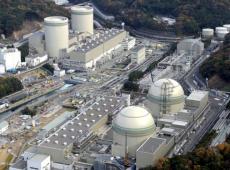


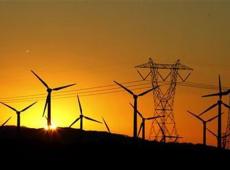


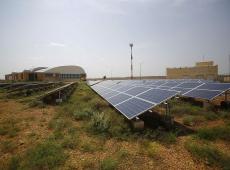
 © 2024 Rediff.com India Limited. All rights reserved.
© 2024 Rediff.com India Limited. All rights reserved.